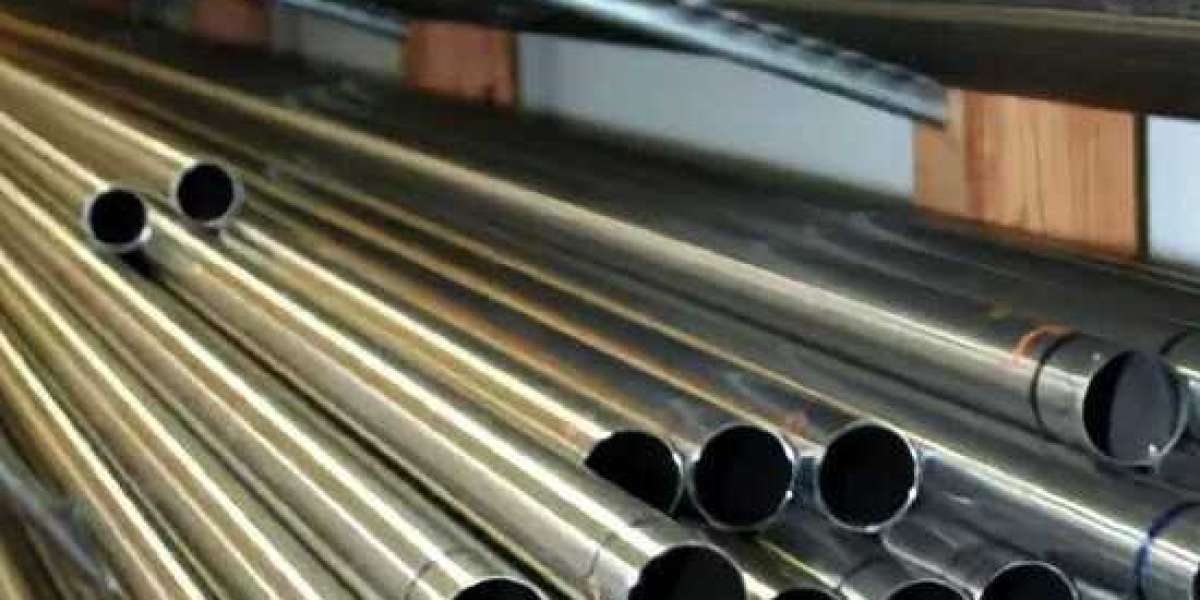Inconel 825 Pipe is a nickel-iron-chromium alloy pipe known for its outstanding resistance to corrosion, particularly in environments containing acids and chlorides. Its unique composition makes it a preferred material in industries such as chemical processing, oil and gas, power generation, and marine engineering. This blog explores the essential characteristics, benefits, and wide-ranging applications of Inconel 825 Pipe, helping engineers and procurement specialists make informed choices.
1. What is Inconel 825?
Inconel 825 is a nickel-based alloy with iron, chromium, molybdenum, copper, and titanium as its primary constituents. It belongs to the Incoloy family and offers a balanced combination of mechanical strength and corrosion resistance. The presence of titanium provides excellent resistance to stress corrosion cracking, while molybdenum and copper enhance its resistance to reducing environments such as sulfuric and phosphoric acids.
The chemical composition typically includes:
Nickel (38–46%)
Iron (balance)
Chromium (19.5–23.5%)
Molybdenum (2.5–3.5%)
Copper (1.5–3%)
Titanium (0.6–1.2%)
Due to this robust composition, Inconel 825 Pipe can maintain its structural integrity and performance in extreme conditions.
2. Key Features and Properties
The Inconel 825 Pipe offers several mechanical and chemical advantages:
Corrosion Resistance
One of the primary reasons industries opt for Inconel 825 Pipe is its outstanding corrosion resistance. It performs exceptionally well in:
Sulfuric acid environments
Phosphoric acid solutions
Chloride-rich atmospheres
Seawater and marine applications
Its resistance to both oxidising and reducing agents makes it an excellent choice for challenging chemical environments.
Thermal Stability
Inconel 825 retains its strength and structure in high-temperature applications, making it suitable for heat exchangers and process equipment. It can be used in temperature ranges up to 540°C (1000°F) without significant loss of properties.
Mechanical Strength
The alloy exhibits moderate to high strength and good impact resistance. It can be easily welded and formed using standard methods, which adds to its appeal in manufacturing and assembly operations.
Stress Corrosion Cracking Resistance
Thanks to the addition of titanium, the pipe exhibits high resistance to intergranular corrosion and stress corrosion cracking (SCC), even in high-pressure acidic environments.
3. Common Applications of Inconel 825 Pipe
Due to its performance in harsh environments, Inconel 825 Pipe is used in various critical industries:
Chemical Processing
Pipes used in the transportation of corrosive chemicals like sulfuric and nitric acid benefit greatly from the material's durability and chemical resistance. Inconel 825 Pipe is used in heat exchangers, reboilers, evaporators, and transfer pipelines.
Oil Gas Industry
In offshore and onshore drilling environments, materials are often exposed to saline water, CO₂, and H₂S gases. Inconel 825 Pipe serves reliably in these conditions due to its corrosion and cracking resistance.
Nuclear Fuel Reprocessing
The alloy’s resistance to radioactive and corrosive fluids makes it ideal for use in nuclear waste handling and reprocessing systems.
Pollution Control
Scrubbers and filters in air pollution control equipment rely on the corrosion resistance of Inconel 825 to deal with acidic condensates and other harmful compounds.
Marine Engineering
Marine environments require materials that resist both saltwater corrosion and biofouling. Inconel 825 Pipe is a preferred option for underwater piping and structural elements.
4. Comparison with Other Inconel Grades
Inconel 825 is often compared with other alloys in the Inconel family, such as Inconel 625 or Inconel 718. However, 825 offers specific advantages in acid-handling applications and costs less due to lower nickel content.
Inconel 625 offers better strength but comes at a higher cost.
Inconel 718 is known for excellent strength and creep resistance, suitable for aerospace but overkill for many industrial applications.
If your project demands a strong balance of cost-effectiveness, corrosion resistance, and weldability, Inconel 825 Pipe stands out as the ideal choice.
5. Fabrication and Welding
Another advantage of Inconel 825 Pipe is its ease of fabrication. It can be:
Welded using standard arc welding methods
Formed with standard tools and procedures
Cold-worked or hot-worked depending on application needs
Its workability means reduced downtime during installation and repairs, further lowering operational costs.
6. Standards and Specifications
Inconel 825 Pipe is manufactured as per various international standards to ensure consistent quality and performance:
ASTM B423: Seamless and welded pipe and tube
ASME SB423: Boiler and pressure vessel standards
NACE MR0175: Resistance to sour gas environments
ISO and DIN equivalents as per project specifications
7. Conclusion
In environments where standard stainless steel fails due to high corrosion or temperature stress, Inconel 825 Pipe proves to be a reliable and long-lasting solution. Its well-balanced mechanical properties, excellent chemical resistance, and thermal stability make it a preferred choice for high-performance industrial applications.
Whether you’re involved in chemical processing, marine operations, or nuclear waste handling, Inconel 825 offers the versatility and resilience your system needs. With the right supplier and quality assurance, integrating Inconel 825 Pipe into your infrastructure is a smart investment in durability and efficiency.






